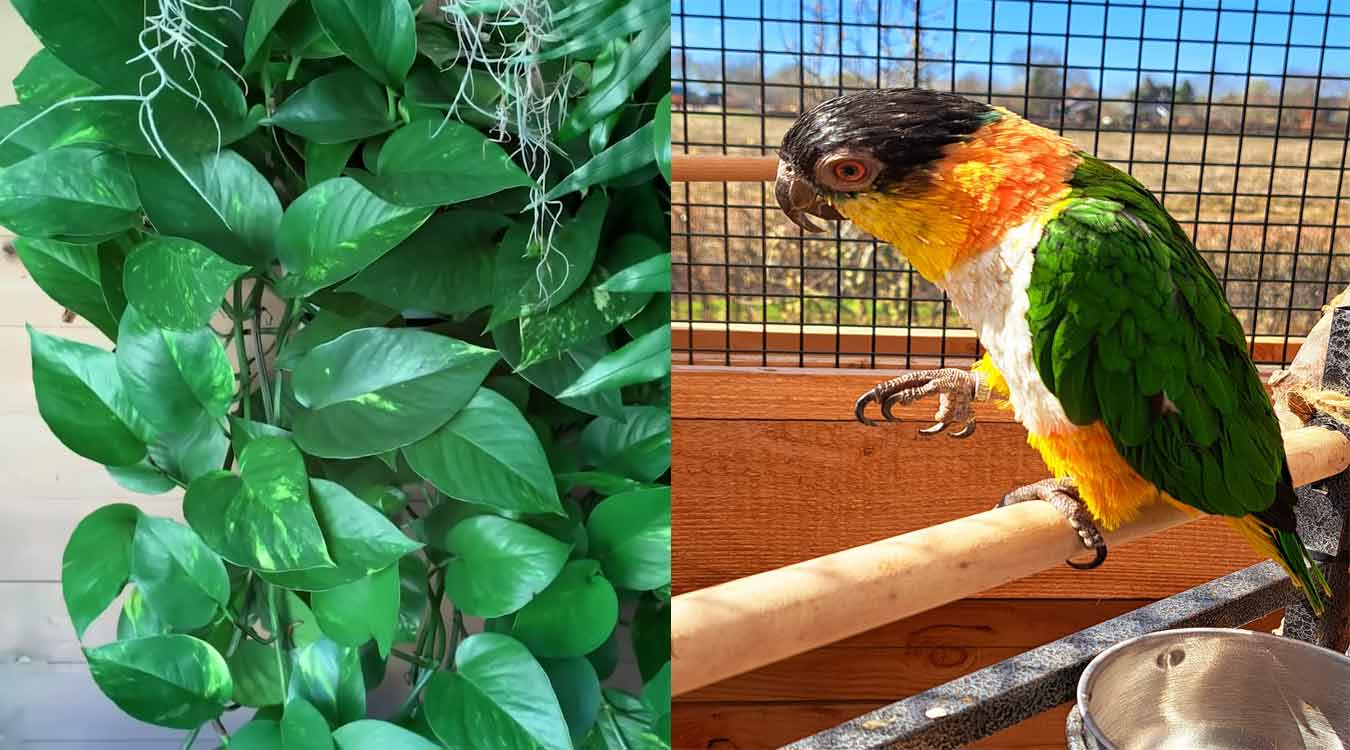Is Pothos Plant “Bird Safe?” Let’s Find the Answer!
The answer would be a big NO. Pothos isn’t safe for birds, and whoever tells you otherwise either doesn’t know about this or wants your bird gone.
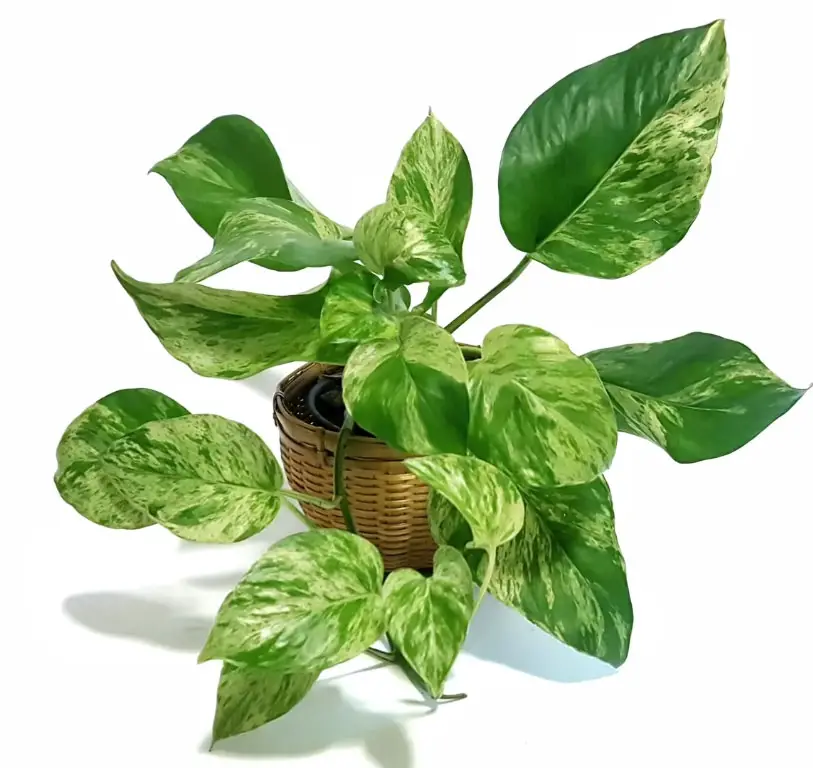
The fact that you are here, reading this article, shows that you do not believe everything they hear from others. It also means you care deeply for your birds. But you probably have a thing for Pothos plants, too.
Well, who doesn’t? The lush green leaves and easy-care requirements make this amazing plant a favorite organic home décor. However, behind the beautiful leaves lie toxins that can prove fatal for your birds.
How fatal is it, and what can you do about it? You will find out soon. Keep reading.
What Are Pothos and How Do They Affect Birds?
Pothos is a versatile and attractive houseplant. It also has other names, for example, Golden Pothos and wait for it… Devil’s Ivy.
Yes, the onomatologists associated this plant with the “devil.” This should give you a clear idea of the toxins these plants contain.
But the toxin isn’t and won’t be apparent to you. My Pothos, just like every other plant, thrives both indoors and outdoors. They have unique heart-shaped leaves and come in multiple shades of green.
Despite having toxins inside, this plant can work as an air purifier and purify indoor air. I can feel the difference of having Pothos in my room, which is why it’s my favorite.
But the concern arises when you have enthusiastic and curious birds in the house. They will try to munch on anything but shouldn’t be allowed anywhere near the Pothos because of their toxic nature.
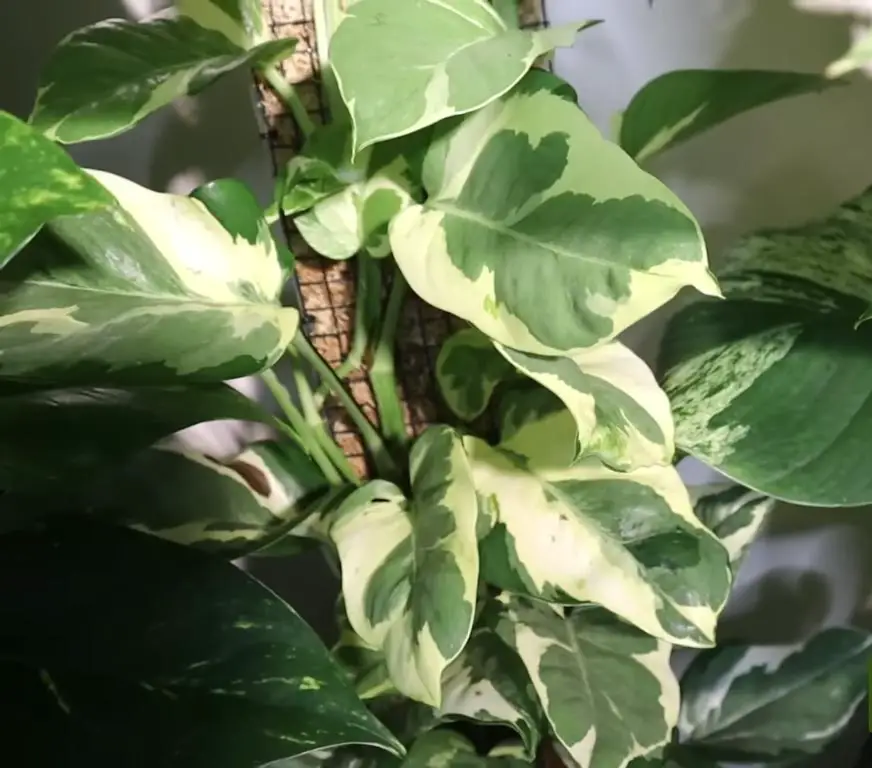
The primary toxic substances in Pothos are insoluble calcium oxalate crystals. These microscopic crystals can cause severe irritation when they come into contact with the sensitive tissues of a bird’s mouth, throat, and digestive system.
When a bird ingests any portion of the plant, it may experience symptoms such as drooling, difficulty swallowing, oral irritation, and digestive discomfort.
For a frame of reference, let me share my story. I accidentally once had a Pothos leaf rubbed on the back of my hand. It was not that rough of a rub, but the microscopic spikes or the crystals were like shards of glass. They rip, shred, and tear the surface of the skin.
This is exactly what happened to me. And as the toxin entered through the atomic wounds, my hand started itching badly. I also had allergies to Pothos, so one can only imagine the horror I went through.
Now, let’s put this into comparison. The sensitivity of human skin is ranked at 3. The lower the number, the lesser the sensitivity.
In contrast to humans, birds have a sensitivity that ranks at 9. There’s no need to further explain what would happen to a sensitive bird if it comes in touch with something that can shred the rough skin of humans.
Now, let me show you the level of suffering a Pothos can cause a bird.
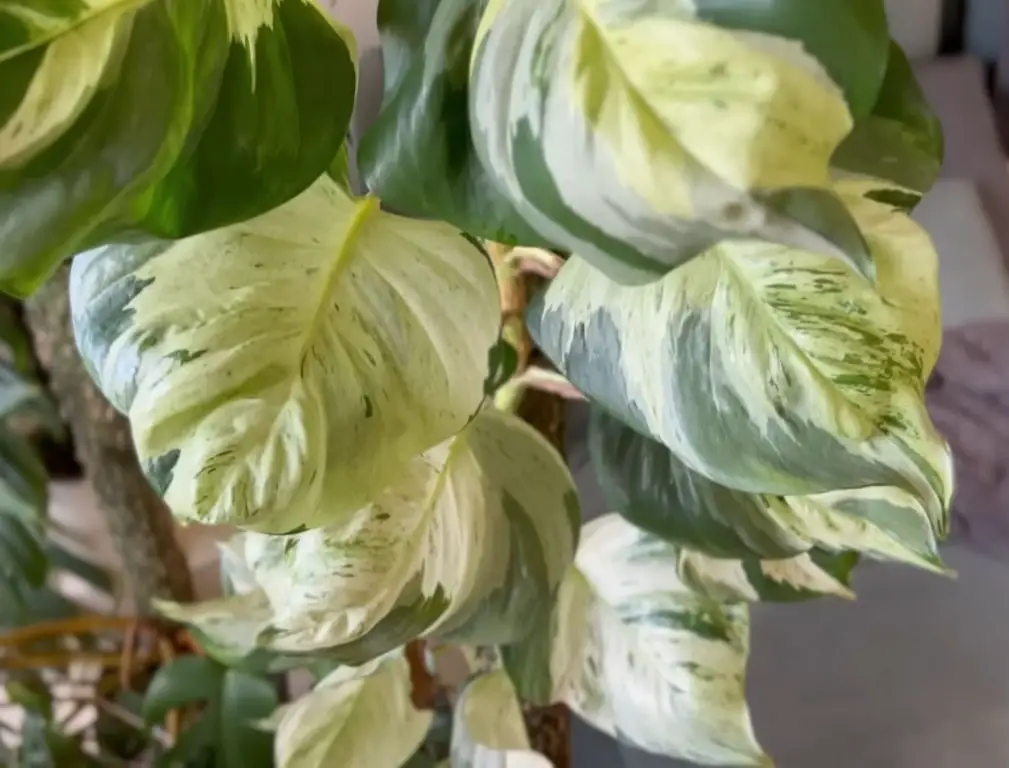
Read about other toxic plant for birds: Is Snake Plant Safe for Birds?
Oral Irritation
The most common effect of Pothos is oral irritation. As mentioned, the insoluble calcium oxalate crystals can cause immediate discomfort and irritation in the bird’s digestive system and mouth.
If this is the case, the bird will start drooling, excessive salivation, and pawing at the mouth.
Gastrointestinal Distress
Ingesting Pothos can lead to gastrointestinal distress in birds. As a result of this, birds experience nausea, vomiting, and abdominal pain.
Digestive discomfort is a common symptom. The affected birds may display signs of pain, such as restlessness and fluffing of feathers.
Difficulty Swallowing
The irritation generated by the calcium oxalate crystals will lead to further difficulties. Apart from digesting, the bird may have problems with swallowing food and water. As a result, the bird loses its appetite and suffers from dehydration.
Respiratory Distress
In severe cases of Pothos toxicity, I have seen the birds struggling with respiratory issues as well. This is especially true when the bird ingests a significant amount of Pothos.
In such situations, the bird will manifest labored breathing, wheezing, or open-mouthed breathing. All of this indicates a more critical condition.
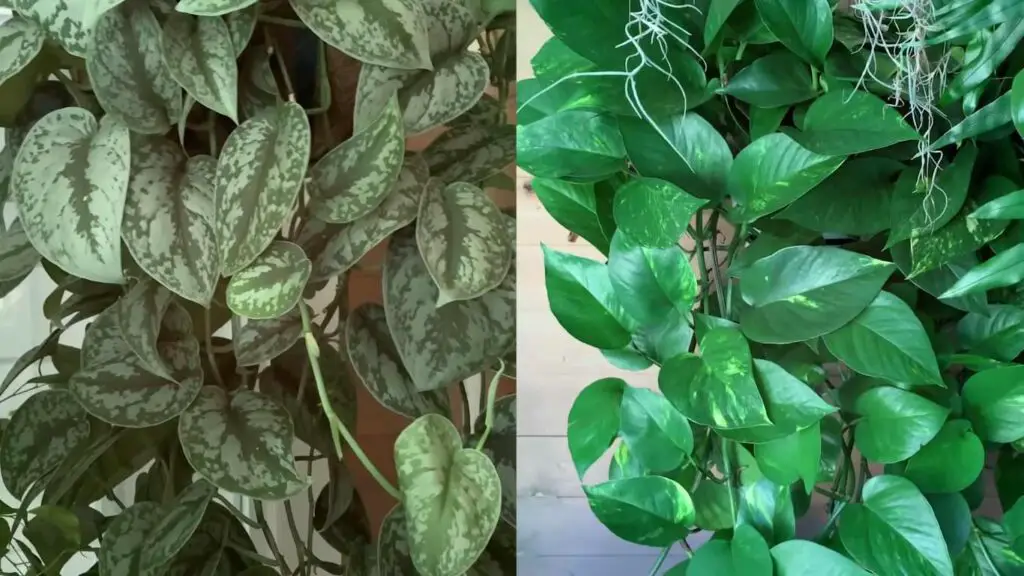
Vocal Changes
As an effect of the toxins of the Pothos, the bird’s vocalization can change drastically. My bird started to sound different, and it was beyond recognition.
Birds can also suffer from infections, electrolyte imbalances, and, in extreme cases, life-threatening conditions.
Safety Concern for Birds Around Pothos and Things You Can Do
I try to keep my birds away from Pothos the best I can. But I don’t always succeed. There have been instances, especially when I was a novice when I couldn’t protect my birdies from munching on the Pothos leaves.
After closely observing my personal experience and a bit of research, I have narrowed down the following bird safety concerns regarding Pothos.
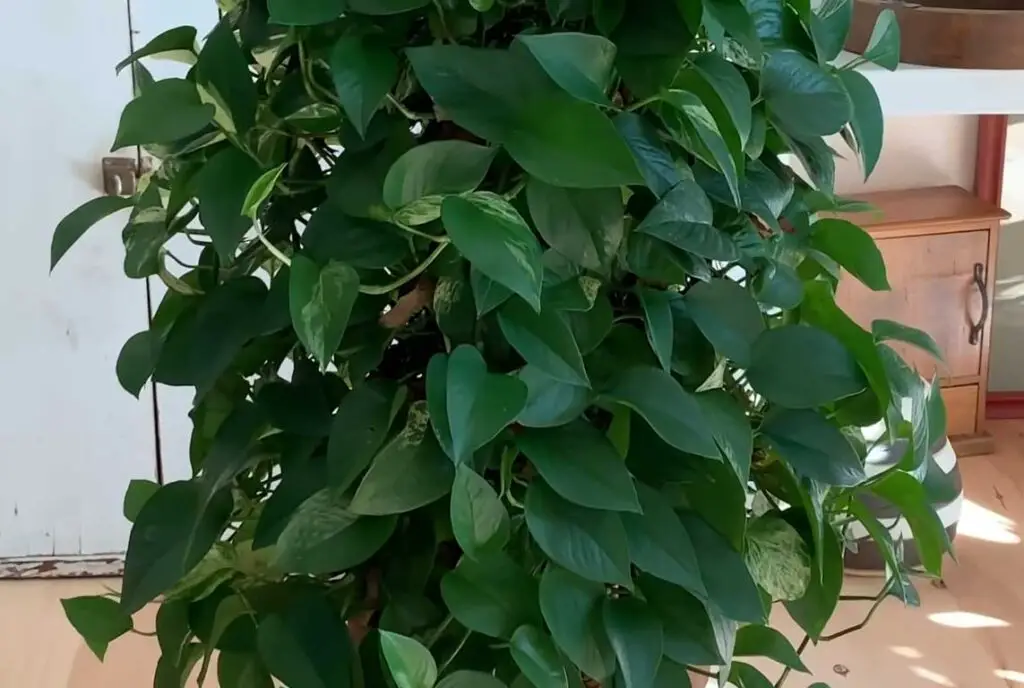
Birds are naturally curious
This is no secret. Most birds are naturally curious creatures. They often explore their surroundings with their beaks and feet. This curiosity is essential for their well-being as it helps them find food, investigate potential nesting sites, and interact with their environment.
In this process, they can come in contact with this plant, and this can cause the problems I just discussed in the previous point.
I simply place my plants out of the birds’ reach to avoid this situation. I find hanging planters and shelves particularly effective for this purpose. This makes the plant inaccessible to birds, ensuring their safety.
They nibble on everything in sight
Birds usually have a nipping tendency. They like to explore and chew on everything that comes their way, including books, chairs, tables, and plants. As a result, they can get into direct contact with the Pothos plant.
To be honest, it’s not possible to keep an eye on them 24/7. So, what I do is I provide them bird-safe toys and objects for chewing to redirect their nibbling behavior away from plants.
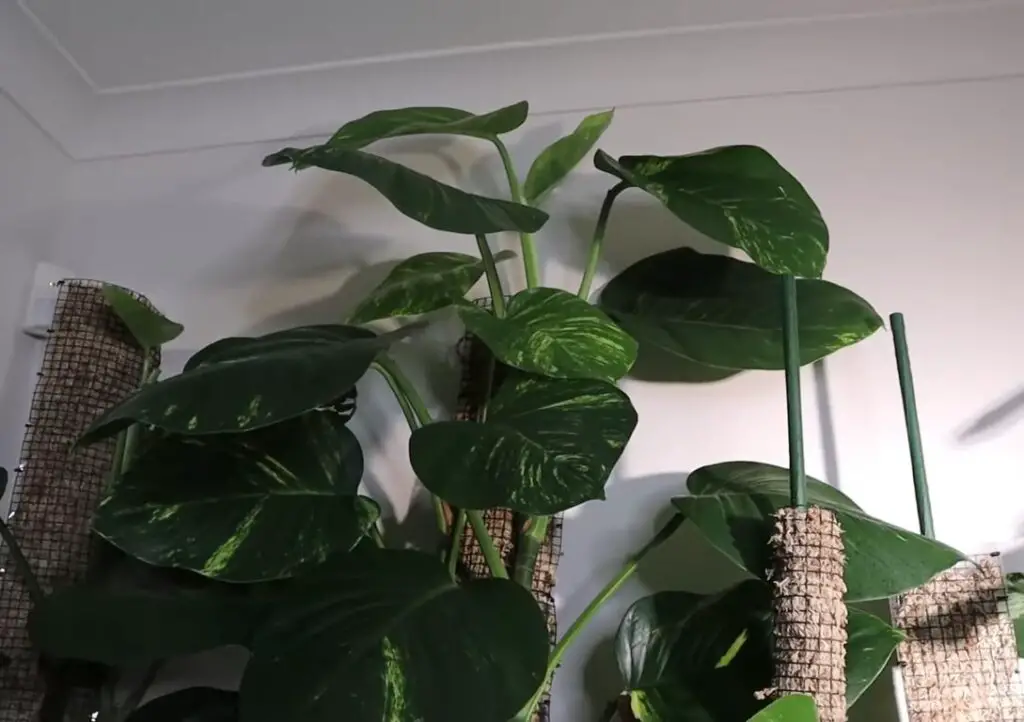
I make sure to offer a variety of textures and materials so that their natural urge to chew is satisfied.
Look out for the symptoms
You already know what symptoms a bird shows if it comes in contact with Pothos plants. Tongue scratching, lethargy, depression, ruffled feathers, loss of appetite, and voice change are common signs that your bird is in trouble.
My strong suggestion is to save a moment if you notice these symptoms in your birds. Take it to the vet immediately before the situation gets worse.
These are the steps I take to make sure my birds aren’t victims of the toxins of the Pothos plants, and through this way, you can save your feathered friend as well.
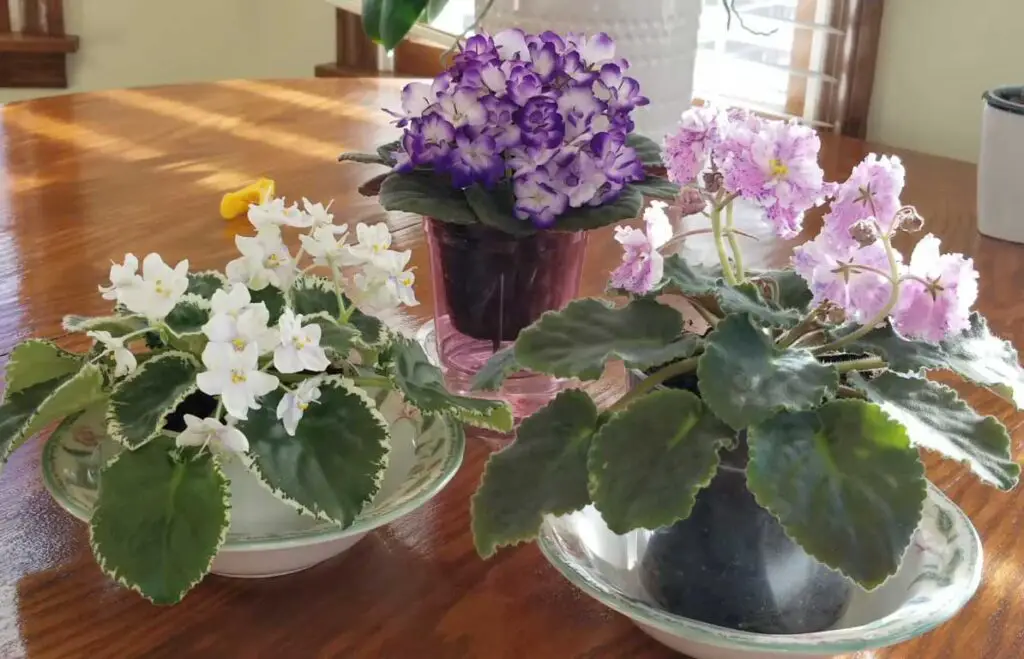
My Final Few Words
Whenever someone asks me how to keep birds safe from the toxins of Pothos, I immediately suggest they opt for an alternative plant option. Many non-toxic plants like Spider Plants, Boston Fern, African Violet, and Calathea exist.
These plants look almost similar to Pothos but aren’t toxic at all. In fact, these plants can be good friends for your birds. But, if you really need to have Pothos in your house and your own bird/s, then you must know about the safety concerns involved.
If you read this entire article, you are now aware of it all. Just do your part to keep the birds safe; that should be all you need to do to have a house full of greenery and chirping.
